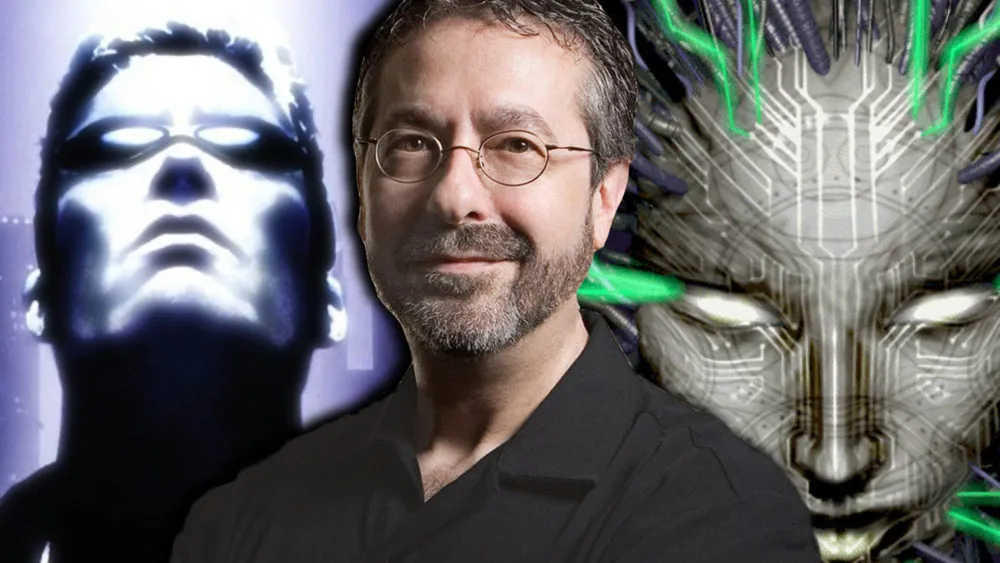You’ve no doubt heard the name, but likely not for some time.
In this new monthly series, Twinfinite is reviewing some of the most iconic and influential developers that are soon to make a comeback to the industry spotlight. For our inaugural chapter, we’re briefly recounting the career of video gaming legend, Warren Spector, and looking forward to his latest projects.
After cutting his teeth on the Ultima series while working at Looking Glass Studios back in 1992, Warren Spector later became part of a group of talented developers that would give birth to a hybrid first-person/RPG game design that has since influenced dozens of popular video games. Indeed, IPs such as Bioshock and Dishonored perhaps wouldn’t have existed without Spector’s brainchild, Deus Ex, which he oversaw after experience working on the original Thief, a franchise he later returned to with Thief: Deadly Shadows. And it was these two titles that saw him implement his talent for innovating non-linear game design in a way that impacted both gameplay and story — some would say in a manner that still to this day hasn’t been bested.
Following a lukewarm reception to Deus Ex’s sequel, Invisible War, in 2004, and Ion Galaxy’s closure by Eidos Interactive a year later, Spector took a break from the games industry to “pursue personal interests outside the company.” Only the notion of working with Disney on a brand-new IP tempted him back. Epic Mickey, as it was titled, was the children’s tale brought to life that Spector had always wanted to design. Despite once stating it was the high-point of his career, and boasting some clever mechanics, Epic Mickey wasn’t especially well received by critics and consumers. A sequel title followed, but the series’ legacy is often thought of as one of missed opportunity and disappointment by fans.
Poor review scores and Disney’s decision to quit the game’s industry resulted in Spector taking a hiatus from game development. Between 2012-2015, Spector spent his time teaching game design at the University of Texas. He’s now on the way back, though, with a sequel title that will be hugely exciting for fans of his best-known work.
Remakes are all the rage these days, and indie developer Night Dive Studios’ upcoming reimagining of the original System Shock has a lot of veteran gamers salivating. Yet, it’s not just a reboot in the pipeline for classic series; System Shock 3 is also simultaneously in development, and Spector’s on board to help steer the ship. Otherside Entertainment, a studio led by ex-Looking Glass Studio and former colleague of Spector, Paul Neurath, acquired the rights to System Shock 3 back in 2015. Spector recalls: “Paul Neurath came along and said, ‘would you like to make a System Shock game?’ And it took me about two seconds to say yes—unfortunately for the university.” With six months of a three-year contract at the University remaining, Spector pulled the plug, lured back to game development by the prospect of returning to System Shock.

Unfortunately, other than a teaser image of the game’s infamous antagonist, SHODAN, and some early concept art, we still know very little about System Shock 3 three after it was first announced. Spector explained to Polygon last year why he rejoined the project:
“I produced System Shock and played System Shock 2 so I’m pretty familiar with the universe,” Spector said. “And there were some fictional loose ends to explore and tie up. That sounded like fun. Also, SHODAN. You know what I mean?”
Asked about how Spector believes System Shock 3 will stand out from an immersive sim genre that’s since become familiar and mainstream, he said:
“I think having more immersive simulation games out there is all to the good. Based on what I’ve seen of Prey so far, there are some similarities but I assure you we’re doing stuff that team didn’t do, just as they did stuff we’re not. I’m not worried about people getting confused.”
System Shock 3 isn’t the only project Spector is working on at Otherside Entertainment. The studio is working on another upcoming title, and much like System Shock, it also marks a return to their roots for both Paul Neurath and Warren Spector once again. Underworld Ascendant is a spiritual successor to the Ultima series the two worked on nearly 30 years ago. This time a dungeon-crawling fantasy-RPG played from a first-person perspective, Underworld is a deep immersive-sim style experience that aims to put a premium on player freedom and choice of playstyle.
“We’re trying to take the immersive-sim genre a little further… we confront you with challenges and problems but you get to decide how you interact and solve them,” Spector told Gamereactor at E3 2018.
As a creative consultant on that particular project, he spoke of his commitments as liaising with the Underworld team “about once a week.” System Shock 3, then, is very much his primary focus moving forward.
Regardless, what’s especially exciting about Spector’s return to games development is that he’s been given a platform to work at his own pace and on projects that he’s truly passionate about —surely an environment that’s likely to allow him the best possible chance to produce the same magic that cemented his legendary status all those years ago. In the end, it’s a case of indie gaming offering developers a greater capacity to exercise their creative freedom where AAA productions funded by big-money publishers sometimes stifles.
In an interview with IGN, Spector spoke of his dislike for the current state of AAA gaming:
“I kinda don’t care about the future of AAA gaming. I think the costs are so high, the teams are so big, the risks are so great that we’re seeing an awful lot of same old, same old with prettier pictures.”
So, now armed with the creative freedom to revive an iconic IP near and dear to his heart, we can’t wait to see what a modern System Shock game is going to look like and what innovations Spector and his team can bring to the genre he first helped create. In the same interview, he claimed the game “has one thing that nobody has ever seen before.” And while it’s anybody’s guess as to what exactly he’s referring to, that’s one hell of a reason to watch this space very closely.













Updated: Aug 21, 2018 11:30 am